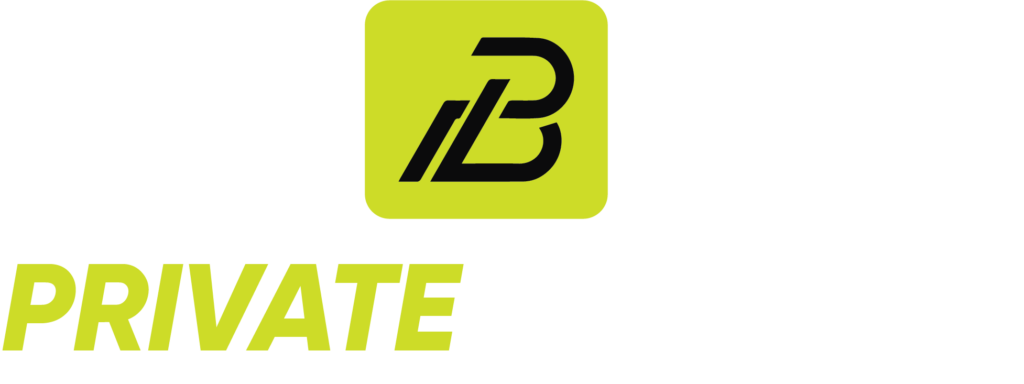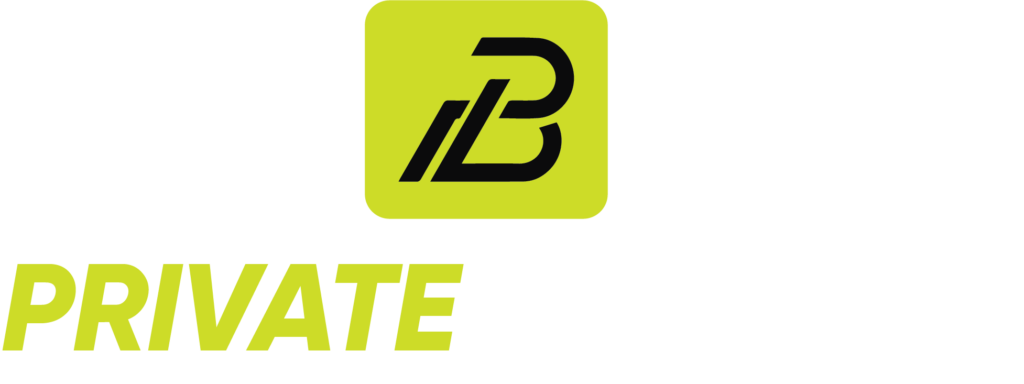Selling a business is a significant and often emotional journey for any business owner. It can stir a mixture of pride and accomplishment alongside feelings of sadness and uncertainty as you prepare to part with something you’ve poured your heart into. Many business owners also face anxiety and stress over finding the right buyer and ensuring a smooth transition.
If this is your first time selling a business, don’t worry—you’re not alone! Most business owners haven’t navigated the sale process before. This comprehensive guide to selling a business is designed to simplify the process and provide clarity on the necessary steps. Whether you’re in North America, Europe, or beyond, this guide will help you understand the preparation involved and how professionals can assist you in making the process as smooth and successful as possible.
In the following sections, we’ll walk through the key stages of selling a business, ensuring you’re equipped with the knowledge to make informed decisions every step of the way.
Preparing Your Business for Sale
Selling a business is a major financial and emotional decision. To ensure a smooth and successful transaction, preparation is key. Below are the crucial steps you need to take to properly prepare your business for sale:
Evaluate Your Business
The first step in preparing your business for sale is determining its value. Understanding how much your business is worth will give you an idea of what to expect when listing it and can help you set a realistic asking price. Here are key factors to consider:
- Profitability: Buyers are looking for businesses that generate consistent income. If your business has strong profitability, it will have more appeal to potential buyers.
- Market Position: A business with a well-established market presence or unique value proposition is more likely to attract serious buyers.
- Growth Potential: Buyers are always looking for businesses with future growth prospects. Highlighting any areas where your business could expand or improve will increase its appeal.
Financial Clean-Up
Having clean, organized, and up-to-date financial records is essential when selling your business. Buyers will want to see that your finances are in order before they proceed with a purchase. Take the time to do the following:
- Prepare Financial Statements: Make sure your financial statements (balance sheet, profit and loss statement, tax returns, etc.) are accurate and up-to-date. Buyers will closely examine these documents to assess the financial health of your business.
- Reduce Debt: If possible, pay off outstanding debts or liabilities. A business with minimal debt is far more attractive to buyers and can result in a higher selling price.
- Organize Accounts: Separate personal and business finances. If your personal and business finances are tangled, this can raise red flags for potential buyers.
Legal Considerations
Before listing your business for sale, it’s important to ensure that all legal matters are in order. This can help prevent any complications during the sale process. Some steps include:
- Review Contracts: Go through all existing contracts with suppliers, customers, employees, and partners. Ensure that contracts are transferable to the new owner and that there are no restrictive clauses that could hinder the sale.
- Intellectual Property: If your business owns intellectual property (such as patents, trademarks, or copyrights), make sure these are properly documented and transferable.
- Legal Structure: Evaluate whether your business’s legal structure is optimal for a sale. For example, selling a sole proprietorship can be more complicated than selling a corporation or LLC due to different legal requirements.
Improve Operations
Buyers are often interested in businesses that run efficiently and with minimal day-to-day involvement from the owner. Streamlining your operations not only makes your business more attractive but also increases its value. Here’s how to improve operations:
- Create Standard Operating Procedures (SOPs): Document your business processes, including workflows for marketing, sales, inventory management, and customer service. SOPs make it easier for a new owner to step in and manage the business.
- Automate Where Possible: Automating repetitive tasks can reduce overhead costs and improve efficiency. Consider implementing systems that can help run the business with minimal involvement from you, such as accounting software or customer relationship management (CRM) tools.
- Train Employees: Make sure your team is well-trained and can continue operating the business smoothly after the sale. The more capable your staff is, the more valuable the business will be to buyers.
Get a Business Valuation
While evaluating your business yourself is a good start, getting a professional valuation can provide you with an objective, third-party opinion of your business’s worth. A business appraiser can take a deep dive into the financials, operations, and market conditions to give you a more accurate valuation. This step can also help you identify any weaknesses that may affect the sale price and allow you to address them in advance.
Assess Your Personal Goals and Expectations
Before selling, take the time to assess your personal goals. Do you want to retire after the sale? Are you looking to stay on and help the business transition? Understanding what you want from the sale will help you make better decisions during the process and set realistic expectations for the sale price and terms.
Understanding Buyer Types
When you decide to sell your business, understanding the types of buyers who may be interested is crucial to tailoring your approach and maximizing the sale price. Different buyer types have unique goals, preferences, and approaches to acquisitions. Here’s an overview of the most common types of buyers you may encounter and how to approach them:
1. Individual Buyers
Individual buyers are often entrepreneurs or people looking to own and operate a business themselves. They may be seeking a new opportunity or a way to invest their capital. This type of buyer tends to be more hands-on and personally involved in the business operations.
- What They Look For:
- Profitability and Stability: Individual buyers typically seek businesses with a consistent revenue stream. They want to make sure that the business has a stable cash flow and a solid track record of profits.
- Hands-On Operations: These buyers are often interested in businesses where they can actively manage day-to-day operations. They may be attracted to smaller businesses that require personal involvement.
- Growth Potential: Individual buyers are usually interested in businesses that offer opportunities for growth or improvement. They want to buy a business that can provide a good return on investment through their involvement and efforts.
- How to Appeal to Them:
- Highlight the stability and profitability of the business.
- Show them how they can manage operations and how the business can scale.
- Provide clear documentation of the business’s performance and growth potential.
2. Corporate Buyers (Strategic Buyers)
Corporate buyers are larger companies looking to expand their market share, product offerings, or geographical reach. These buyers are often interested in acquiring smaller businesses that complement their existing operations or offer new strategic opportunities.
- What They Look For:
- Synergy with Their Existing Business: Corporate buyers typically look for businesses that can enhance their current operations. This could include expanding their customer base, adding new products, or entering new markets.
- Market Position and Competitive Advantage: Corporate buyers often prefer businesses that have a strong competitive edge or unique market positioning.
- Operational Efficiency: They are interested in businesses that can integrate seamlessly into their existing systems and processes.
- How to Appeal to Them:
- Emphasize how your business complements or enhances their current operations.
- Show how your business could help them achieve their strategic goals, such as gaining access to new customers, markets, or technologies.
- Provide clear data showing your business’s performance and any advantages it offers over competitors.
3. Investor Buyers (Financial Buyers)
Investor buyers are typically individuals or groups looking to purchase businesses purely for financial gain. These buyers may include private equity firms, venture capitalists, or high-net-worth individuals. They are less concerned with running the business themselves and more focused on the potential financial return.
- What They Look For:
- Strong Financial Performance: Investor buyers are heavily focused on the financials. They want to see a solid track record of profitability and potential for growth.
- Scalability and Return on Investment: Investors are interested in businesses that can scale quickly and offer a high return on investment (ROI).
- Minimal Involvement in Day-to-Day Operations: Investors typically prefer businesses that are already well-established with capable management teams in place. They are not interested in being hands-on in operations.
- How to Appeal to Them:
- Provide detailed and accurate financial records that highlight your business’s profitability and growth potential.
- Demonstrate the scalability of the business and how it can generate a high ROI.
- Assure them that the business can run smoothly without requiring their personal involvement in daily operations.
4. Private Equity Firms
Private equity (PE) firms are investment firms that acquire businesses with the intention of improving them and selling them for a profit. They often target businesses with strong potential for operational improvement, growth, or market expansion.
- What They Look For:
- Growth Opportunities: PE firms are looking for businesses that have the potential for growth through operational improvements, market expansion, or new product development.
- Operational Inefficiencies: They are often interested in businesses that are underperforming but have the potential to be turned around through better management and investment.
- Exit Strategy: PE firms typically plan to sell the business after a few years for a significant profit. Therefore, they want to ensure that they can achieve a high ROI within a set timeframe.
- How to Appeal to Them:
- Highlight areas where the business can improve or expand, particularly in terms of revenue growth and profitability.
- Provide data showing the business’s current performance and how improvements could lead to significant value increases.
- Discuss any operational inefficiencies that could be addressed, making the business a good candidate for a strategic turnaround.
5. Family Offices
Family offices are investment firms that manage the wealth of high-net-worth families. Like private equity firms, they invest in businesses but may have a longer-term outlook and a greater interest in building lasting value.
- What They Look For:
- Long-Term Growth and Stability: Family offices typically prefer stable, long-term investments rather than quick-turnaround deals.
- Brand and Legacy: These buyers may also be interested in preserving the legacy of the business, particularly if it has a strong brand or long-standing history.
- Strong Management Team: Family offices often prefer businesses that have a strong, experienced management team in place to ensure continued success.
- How to Appeal to Them:
- Emphasize the long-term stability and potential for growth in your business.
- Highlight the brand strength and legacy of your business, particularly if it has historical significance.
- Assure them that your management team is capable and experienced, ensuring the business can thrive after the sale.
Valuing Your Business
Determining the value of your business is one of the most critical steps in the selling process. A well-established and accurate valuation can help you set a fair asking price, attract the right buyers, and ensure that you’re maximizing your financial return. There are several methods for valuing a business, each with its strengths and considerations. Let’s explore the most common valuation methods and the factors that can impact the value of your business.
1. Methods of Valuation
There are three main approaches to valuing a business: asset-based, income-based, and market-based. Each method has its own strengths and is used depending on the nature of the business and the available data.
a) Asset-Based Valuation
An asset-based valuation focuses on the value of your business’s assets. This method is typically used for businesses that own significant tangible or intangible assets but may not have high profitability or strong earnings potential. The value is calculated by determining the fair market value of your business’s assets and liabilities.
- How It Works: The formula involves adding up the value of all assets (e.g., equipment, inventory, real estate, intellectual property) and subtracting the liabilities (e.g., loans, accounts payable, outstanding debts).
- When It’s Used: Asset-based valuations are commonly used for businesses that are asset-heavy, such as real estate companies, manufacturers, or businesses that deal with valuable equipment or inventory.
- Pros and Cons: This method provides a clear picture of the business’s tangible worth but may undervalue a business that has strong cash flow, customer relationships, or intellectual property.
b) Income-Based Valuation
Income-based valuation is one of the most common methods used, especially for businesses with steady revenue and profit streams. This method is based on the future income a business is expected to generate. Essentially, it determines how much money the business will make over time and applies a multiple to estimate its current value.
- How It Works: The two main types of income-based valuation are:
- Discounted Cash Flow (DCF): The future cash flows of the business are projected and then discounted to present value using a rate that reflects the risk of the investment.
- Capitalization of Earnings: This method involves estimating the future earnings of the business and applying a multiple based on industry standards or risk factors.
- When It’s Used: This approach is ideal for businesses with stable earnings and growth potential, such as service-based businesses or those with recurring revenue models (e.g., SaaS companies).
- Pros and Cons: The income-based method gives a clear view of the profitability and future potential of the business but requires accurate forecasting and assumptions about future performance.
c) Market-Based Valuation
Market-based valuation compares your business to similar businesses that have recently been sold. By analyzing the sale prices of comparable businesses, you can estimate what your business might be worth in the current market.
- How It Works: You identify comparable businesses within the same industry and of a similar size, location, and operational structure. Then, you apply a multiple based on those businesses’ sale prices (e.g., revenue multiple, EBITDA multiple).
- When It’s Used: This method works well for businesses operating in well-established markets with lots of data on similar sales. It’s especially useful for companies in industries where there’s a significant amount of market activity, such as retail or hospitality.
- Pros and Cons: Market-based valuation is based on real-world sales data, making it a highly objective method. However, finding truly comparable businesses can be challenging, and market conditions may influence the value significantly.
2. Factors That Influence the Value of Your Business
Regardless of the valuation method, several key factors can influence the final value of your business. Understanding these elements can help you make adjustments to enhance the attractiveness and profitability of your business before you sell.
a) Financial Performance
The profitability and revenue trends of your business are perhaps the most important factors in determining its value. Buyers are looking for businesses that can generate stable cash flow and demonstrate consistent earnings. The stronger your business’s financial track record, the higher the value.
- Key Metrics: Buyers will closely examine metrics like EBITDA (Earnings Before Interest, Taxes, Depreciation, and Amortization), net income, revenue growth, and profit margins.
b) Market Conditions
Market conditions can have a significant impact on the value of your business. A strong economy, industry growth, and favorable market trends can increase the demand for businesses, leading to higher valuations. Conversely, economic downturns or market saturation can depress business values.
- Industry Outlook: Buyers will consider the long-term viability and growth potential of the industry in which your business operates. Industries with growth potential often fetch higher valuations.
c) Business Risks
The perceived risk of your business can affect its value. If your business operates in a high-risk industry or has significant vulnerabilities (e.g., reliance on a single customer or supplier), buyers may discount the value to account for potential risks.
- Risk Mitigation: Businesses that demonstrate a diversified customer base, low turnover, and strong supplier relationships are generally more attractive to buyers and can command a higher price.
d) Intellectual Property and Brand Value
Businesses with valuable intellectual property (IP), such as patents, trademarks, copyrights, or proprietary technology, often have a higher valuation. Strong brand recognition and customer loyalty can also add significant value to your business.
- Unique Assets: If your business owns unique technology, proprietary products, or a well-recognized brand, these assets can drive up its overall value. Buyers may be willing to pay a premium for the potential benefits these assets bring.
e) Management and Employees
A strong, experienced management team can significantly increase the value of your business. Buyers prefer businesses that can continue to run smoothly without requiring the seller’s involvement after the sale.
- Succession Planning: Businesses with a strong management structure and well-trained employees are more appealing to potential buyers, as they reduce the risk of disruption post-sale.
3. Common Valuation Pitfalls to Avoid
While determining the value of your business is important, there are several common pitfalls that can lead to overestimating or underestimating the business’s worth:
- Overpricing: Setting an unrealistic asking price can turn off potential buyers and lead to a prolonged sale process. Be sure to base your price on objective data and professional valuation methods.
- Underpricing: On the flip side, undervaluing your business can result in leaving money on the table. Ensure that you’re fully accounting for all assets, intellectual property, and potential growth when pricing the business.
- Not Considering Market Conditions: Failing to consider current market conditions can affect the competitiveness of your asking price. Always stay aware of industry trends and the general economic environment.
Create an Information Memorandum
An Information Memorandum (IM) is a key document when selling a business, as it provides potential buyers with a comprehensive overview of the business, helping them make informed decisions. The IM typically includes essential information such as company history, financial performance, market position, key assets, and any intellectual property or proprietary products. It should also outline growth potential, risks, and the reasons for the sale. A well-crafted IM highlights the strengths and opportunities of the business while addressing potential concerns, acting as a selling tool that attracts serious buyers. It is important to ensure the document is accurate, clear, and professionally presented to enhance the business’s appeal and credibility.
Finding Potential Buyers
One of the most effective ways to find potential buyers for your business is by working with a business broker. Business brokers specialize in connecting sellers with qualified buyers. They can help you navigate the complexities of the selling process, market your business confidentially, and negotiate the best possible deal. A broker typically has access to a network of investors and business buyers, increasing your chances of finding the right fit for your business. Their expertise in pricing, valuation, and deal structuring can ensure that you get the maximum value for your business.
Online Marketplaces: In today’s digital age, online marketplaces have become a powerful tool for listing businesses for sale. Platforms like Private Business allow you to easily list your business for a broad audience of potential buyers. Private Business, specifically, offers a streamlined and user-friendly way to connect with serious buyers actively searching for businesses to purchase. By listing your business on such a platform, you can gain exposure to a wide range of buyers—from individuals and investors to larger corporations—without the need for extensive marketing efforts. This online approach ensures that your business gets the visibility it needs to attract potential buyers in a competitive market.
Confidential Sales: Lastly, confidential sales are often the preferred route for many sellers, especially if they wish to keep the sale discreet and avoid disrupting daily operations. Using platforms like Private Business ensures that your business can be listed confidentially, protecting sensitive information until you’re ready to engage serious buyers. This approach helps maintain the integrity of your operations and ensures that your employees, customers, and suppliers are unaware of the sale until the deal is finalized. By keeping the sale confidential, you minimize the risk of causing panic or uncertainty among stakeholders.
Tax Considerations When Selling
When selling your business, it’s essential to understand the tax implications to ensure that you retain as much of the sale proceeds as possible. One of the key tax considerations is capital gains tax, which is applied to the profit from the sale of assets or shares. The rate may vary depending on how long you’ve owned the business and whether it qualifies for certain exemptions, such as small business tax relief. Additionally, structuring the sale—whether as an asset sale or share sale—can have different tax outcomes. You should also consider any potential state and local taxes that may apply. Consulting with a tax professional can help you navigate these complexities, minimize your tax liability, and ensure that your financial situation is optimized for the sale.
Post-Sale Transition
The post-sale transition is a critical phase where the business shifts from the seller to the new owner. It’s essential to ensure a smooth handover to maintain business continuity, which includes providing training and support to the new owner and staff, especially if the business depends on key employees or processes. A well-defined transition plan should be in place, outlining roles, responsibilities, and timelines for the transition period. Additionally, maintaining communication with employees, customers, and suppliers is important to ensure they are informed and reassured. The seller may also be asked to stay on for a short period to help with the transition, fostering a seamless handover and ensuring the new owner’s success.
Settlement and Transfer
The settlement and transfer phase marks the final step in the business sale process, where ownership officially changes hands. This stage involves completing all legal and financial paperwork, including the signing of the sale agreement, payment of the agreed purchase price, and settling any outstanding liabilities or taxes. Additionally, the transfer of assets, intellectual property, and operational control takes place, ensuring that the new owner has full access to the business’s resources and systems. It’s essential to work with legal and financial professionals to ensure all terms are met and that the transaction is completed smoothly. Once the settlement is finalized, the new owner can begin running the business, and the seller can officially step away, marking the successful conclusion of the sale.






